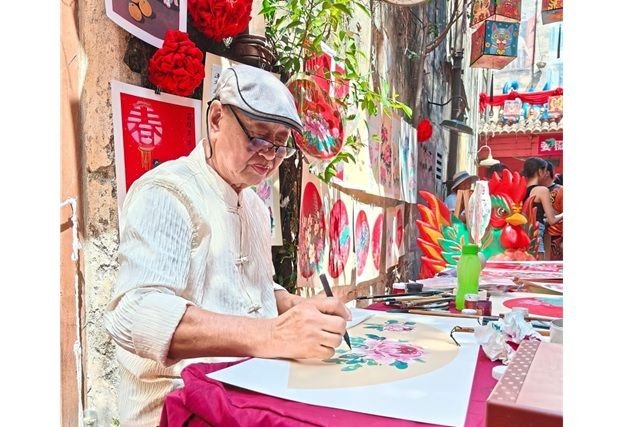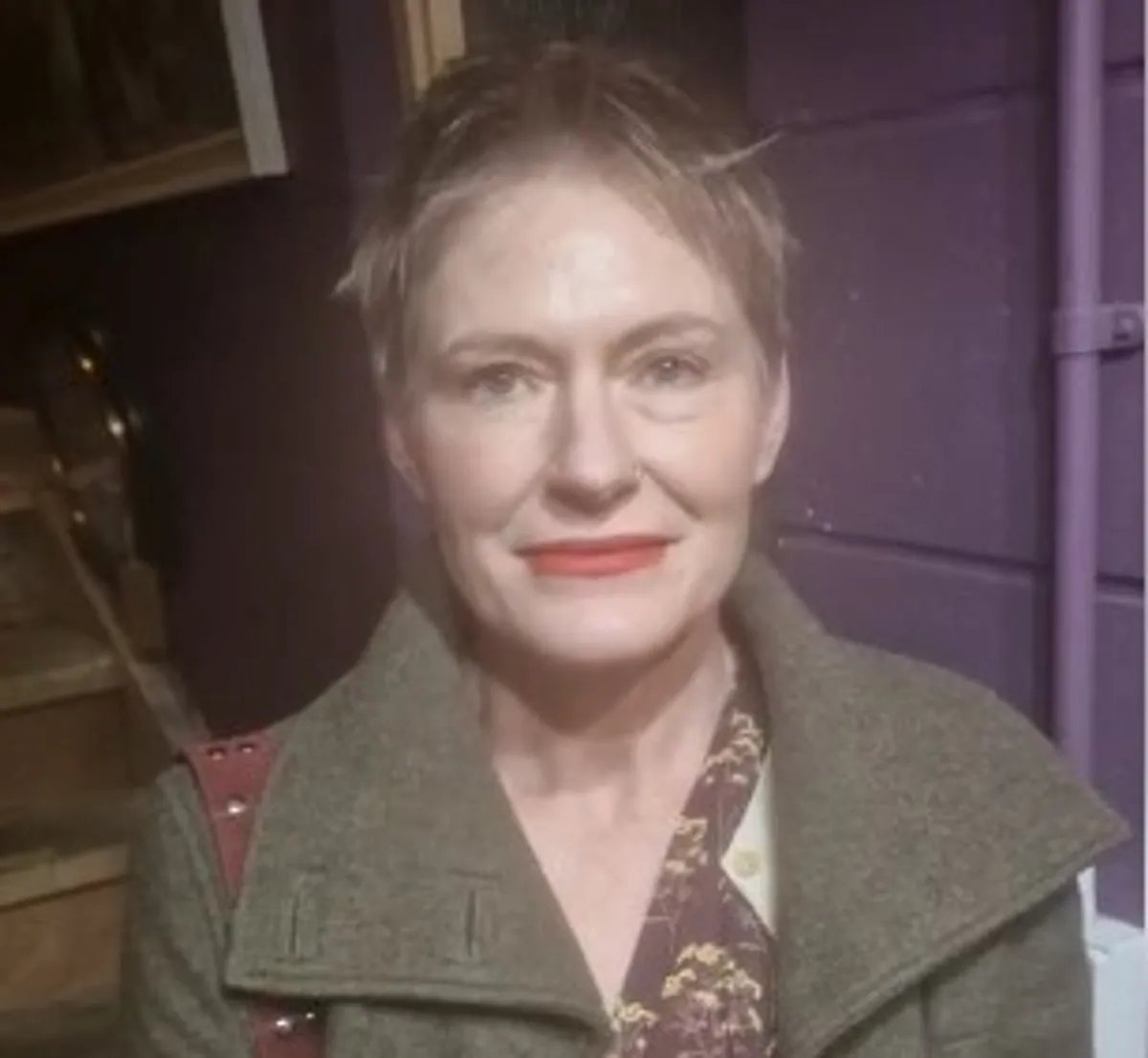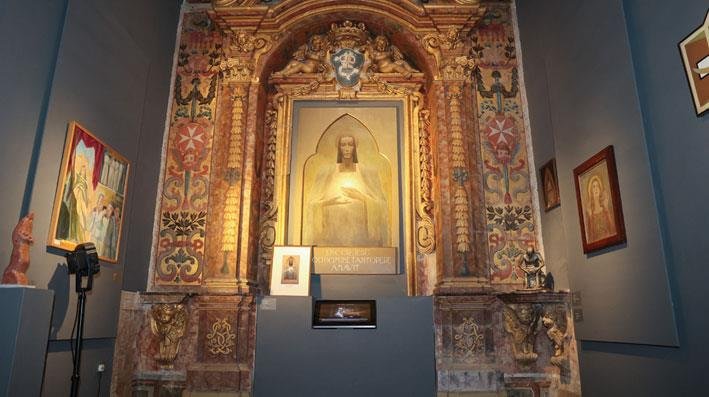Macclesfield-born Shrigley studied at Glasgow School of Art in the late 1980s, where he said the printmaking department was seen as “something of a poor relative to the other departments”.
“Secretly I considered the printmakers to be losers who weren’t good enough to be in the ‘cool’ departments,” the 55-year-old said.
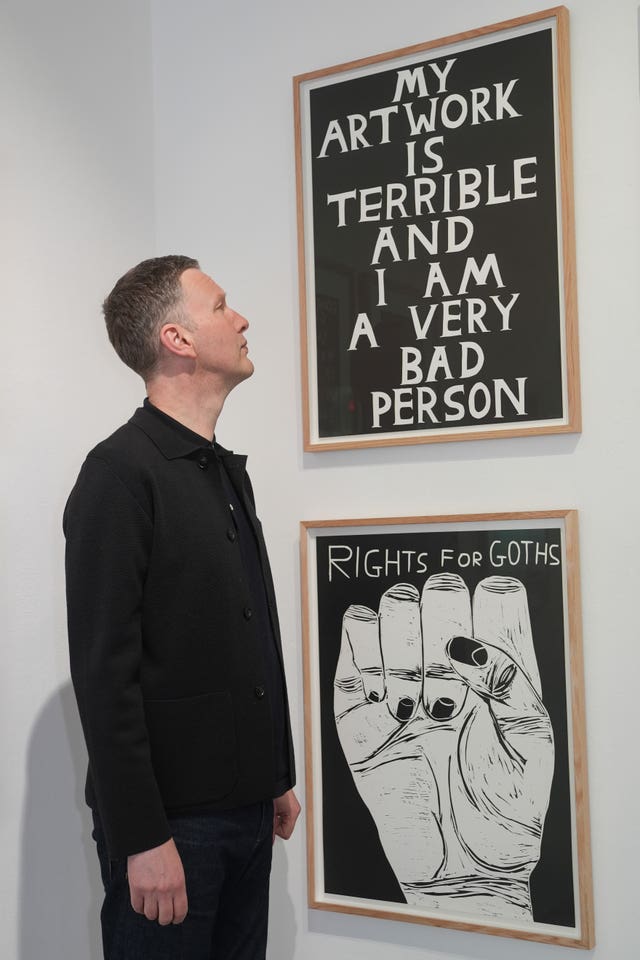
“Printing was old-fashioned. Perhaps even boring. A side-project for serious elderly painters. In short, I wasn’t interested.
“My ill-informed prejudice subsided about a decade later when I made my first etchings in Copenhagen.”
The Danish capital has been a focal point for Shrigley’s artistic practice since the 1990s.
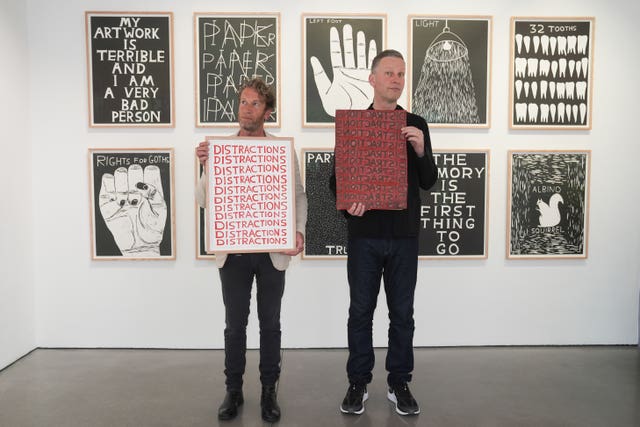
To celebrate the historic printmaking methods he learned in Denmark, Shrigley has collaborated with Danish printmaker Michael Schafer on a new exhibition of works titled Copenhagen Prints.
The exhibition will run at Jealous Gallery in East London from Thursday May 16 to Saturday June 1 and features more than 40 monochrome prints created using traditional printmaking methods, including etching, woodcut and lino printing.
“I quickly learned that the mark of a pen or a brush on paper is an expression whereas the mark you make on a printing plate is a small, controlled act of violence,” Shrigley said.
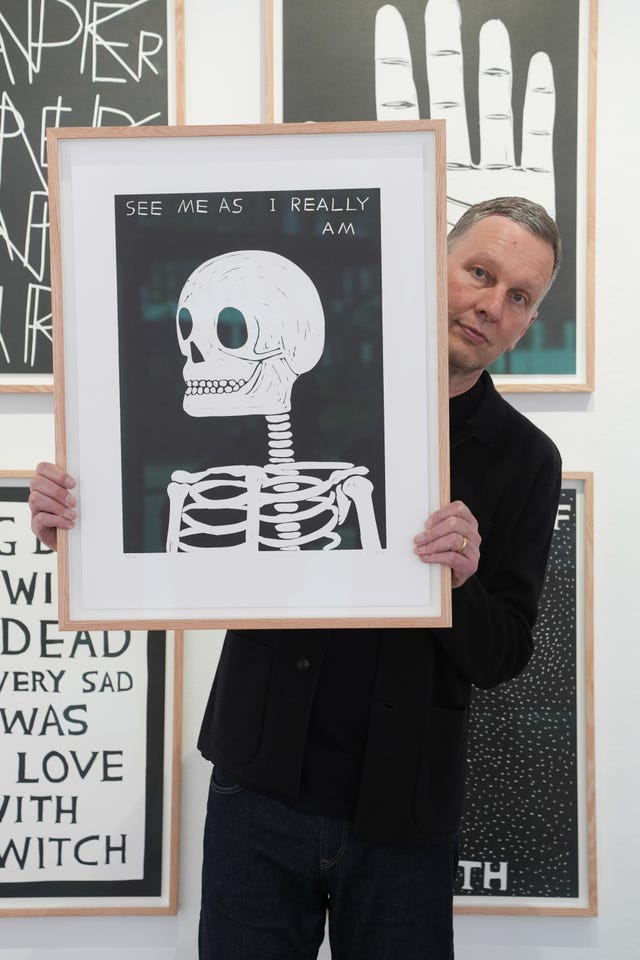
“Printmaking is a medium that has been used for centuries. It is direct. It is vibrant. In a world of digital processes, it is as analogue as art can be.”
All prints featured in the exhibition were hand-made in Schafer’s Copenhagen studio, where Shrigley has worked since 2002.
The exhibition also features a selection of original plates and tools from Schafer’s studio, offering an educational insight into printmaking techniques used throughout history.
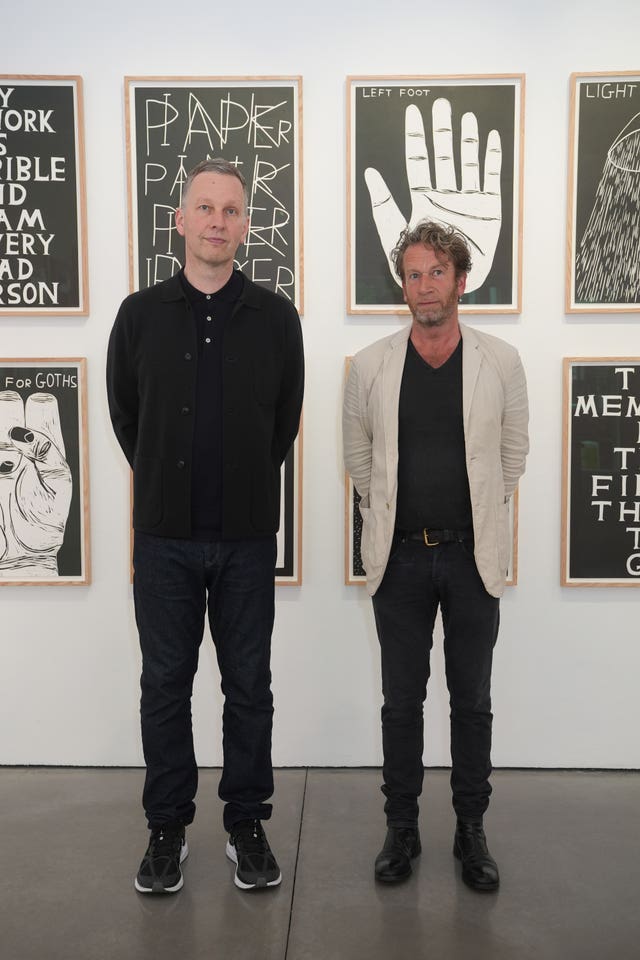
It also marks Shrigley’s only show in the UK this year.
Shrigley’s first exhibition was in 1995 in Glasgow, rising to fame after one of his drawings was featured on the cover of Frieze Magazine later that year.
He was nominated for the Turner prize in 2013 for Brain Activity, and in 2016 he created a sculpture of a bronze hand giving a thumbs up sign titled Really Good, which appeared on the fourth plinth in Trafalgar Square for 18 months.



